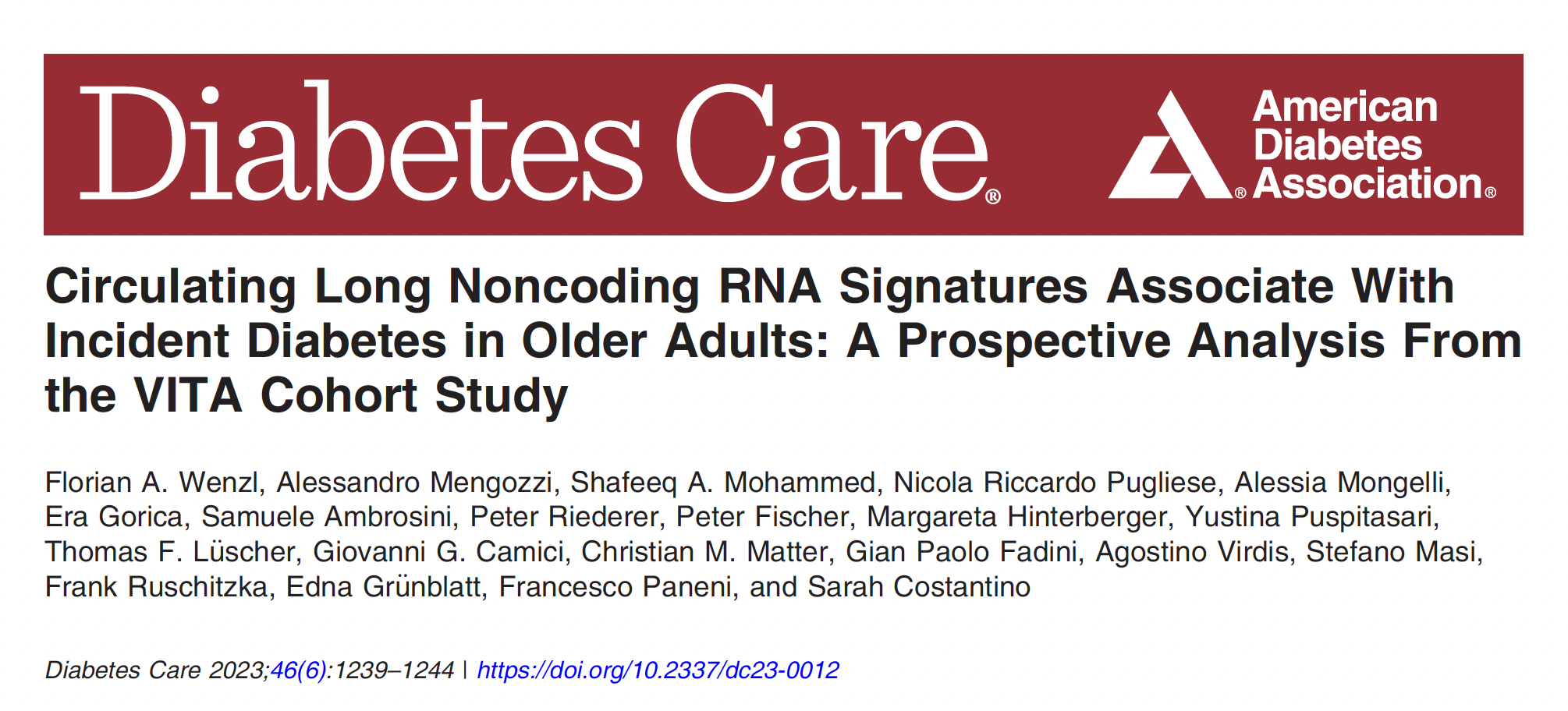Long noncoding RNA signatures predict diabetes years in advance

Type 2 diabetes is a major cause of cardiovascular morbidity and mortality. Importantly, lifestyle interventions in individuals at increased risk of diabetes can delay or even prevent disease onset. Hece, early diagnosis is key to prevent diabetes complications – both highlighting the importance of diabetes risk stratification.
Recent evidence has linked epigenetic disturbances, including altered levels of circulating noncoding RNA molecules, to various metabolic disorders. A set of specific circulating long noncoding (lnc)RNAs have been consistently related to impaired glucose homeostasis in preclinical models, however, their significance in human disease development was unknown.
A recent study by Florian A. Wenzl, Yustina Puspitasari, Thomas F. Lüscher, Giovanni G. Camici, and colleagues published in Diabetes Care now shows for the first time that alterations in circulating long noncoding lncRNAs precede the onset of type 2 diabetes by many years. Indeed, the authors established specific lncRNA signatures as independent predictors of new-onset diabetes beyond established risk sores.
The study sets the stage for refined personalised care (Precision Medicine) to eventually reduce the development of diabetes and its complications. Importantly, the findings provide an additional layer of evidence that epigenetic dysregulation precedes diabetes onset in the elderly which opens a new avenue for experimental and clinical follow-up studies.